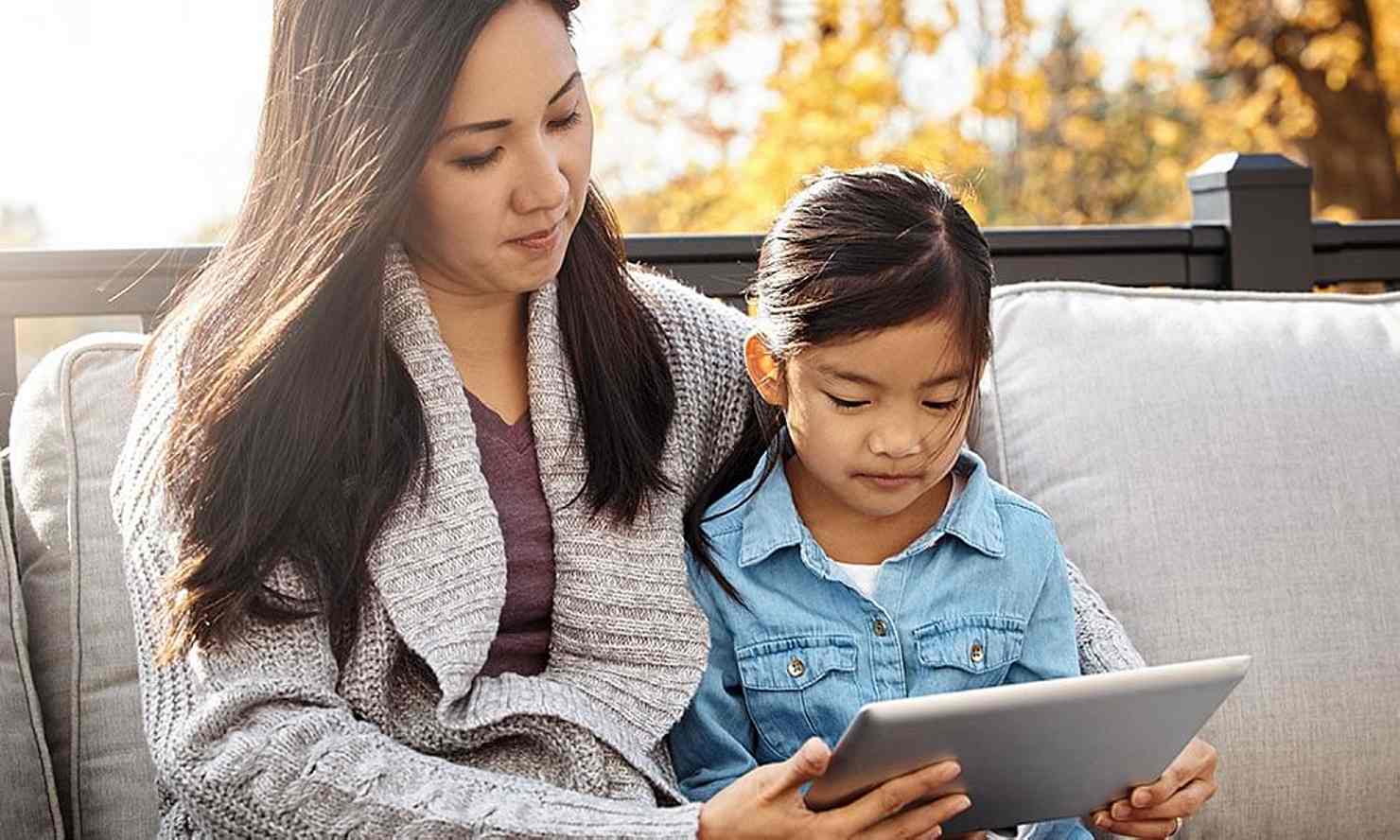
Sapna Mathews, Assistant Senior Counsellor at Eagles Meditation and Counselling Centre at National Library Building and mum to a 10-year old girl, was startled to see her daughter posting pictures on social media that included personal information. “[It totally] freaked me out that she was excessively on social media and sharing so much,” she says.
Unfortunately, Sapna’s experience isn’t isolated. The 2018 Singtel Digital Intelligence Impact Report found that “8-12 years olds in Singapore spend an average of 35 hours per week in front of digital screens for entertainment alone”. The global average is 32 hours a week, making Singapore an additional 3 hours over the global average. During the pandemic it got worse. A study by the Saw Swee Hock School of Public Health at the National University of Singapore found that children under 4 years old had less physical activity and sleep, and spent more time on screens. Screen time in pre-schooler age increased by 23% a day, from 1 hour 45 minutes to 2 hours 9 minutes a day.
While screen time can be both entertaining and educational, there can be health risks involved. Excessive screen time for children under the age of 12 has been linked to depression, issues to connect with humans in the real world, sleep disturbances, concentration and vision-related problems.
Explains Sapna, “We have reward centres in our brain and when we watch a video or play a computer game, it triggers the reward centres leading to a dopamine high”. Getting this type of “high” while the brain is still young (under the age of 12) can result in addiction. “[Children] feel a connection with the device and once the device is taken away from them they behave aggressively.”
READ NEXT
Steering children from screen time to towards green time
“Green time” refers to the time spent outdoors in nature engaging in physical activities. This can have a positive effect on the wellbeing of a child. Spending time in nature encourages children to be physically active. Physical activity helps build strong muscles, bones and cardiovascular systems. Nature supports healthy brain development and reduces symptoms of anxiety and stress.
Studies have shown, being in nature supports cognitive development in children by improving attention and memory power. Playing outside with other children build essential social and communication skills.
In spite of having clear and noticeable benefits of green time, how can we enforce it?
“Match that level of dopamine high by taking your child to the playground and be hands-on during playtime” says Sapna “the time in the playground must excite them and must be enjoyable for a child. Play hide and seek or go down the slide with them. For older kids, throw and catch, treasure hunt (help them and their friends organize one). They need a trigger for their reward centres so the outdoor playtime should be stimulating and arouse interest to a certain level.” Parents need to ensure kids get at least one hour of green time every day with their child. Involve them in some kind of gardening. Let them have the joy of sowing seeds and harvesting their own flowers and fruits.
For Rachel Xie, Asia-Pacific (APAC) Regional Marketing Manager at Siemens, who has two daughters aged 7 and 9, she believes in leading by example. Her two daughters spend less than half an hour a day on any device and the reason being “me and my husband try to keep their screen time to the minimum, so my daughters don’t have a habit of having a screen in front of them”.
She also suggests, “to set up a framework for your child, else they’ll always want to push boundaries. But, you need to be firm with them”. Her daughters don’t have a habit of eating their food in front of a screen as many children do. “They know that, screen is not a toy and that they cannot use it for entertainment”. Both she and her husband spend considerable quality time with their daughters. They play games and also encourage them to read books in their free time. It’s not about just spending time but to involve in a positive way, by asking them ”to share with us what was interesting in the book that they read”.
Credit: 123rf
What you can do at home
Rachel believes it’s the adult’s behaviour that impacts the child’s behaviour the most. For instance “If we are glued to the screen then children will think that this is a normal practice”. As a working mother Rachel too, has to spend a considerable time on the computer. “But this unintentional influence is very important to correct” she says.
Some ways parents can correct their needs to be on their screens is to spend meaningful time with their children away from it. This could be through reading a book or listening to music or going out for exercise. Secondly, parents should actively engage in the connection process by spending quality time with their children. .
It is also essential for a child to have an active learning experience rather than just passively watching a screen. For instance, the Montessori system follows a thematic approach. Says Oshna Singh, a Montessori teacher with 19 years of experience who works at Superland Pre-School at Ganges Avenue, “their curriculum is designed such that there are ample opportunities for a child to engage in active learning, for example Show and Tell sessions and Special weekly thematic day celebration”.
We can also implement Montessori teachings at home by getting them involved in simple kitchen activities such as arranging the utensils or arranging the dinner table. Involve them in kitchen preparation. Children can also fold their own clothes and arranging them in their wardrobes gives them a sense of ownership. This makes them responsible for organizing and shelving their toys and books. “Keep them intrigued by planning an outdoor activity. Collect some pictures of leaves and flowers and make it into a treasure hunt activity. Spot a bird and identify the sound that they make,” adds Oshna.
Parents will always be on either side of the fence when it comes to screen time. While many might not feel there is a huge issue with screen, we can all agree that spending more time outdoors will be beneficial to both kids (and adults!). And if you can find that right balance, there’s no reason not to “treat” the kids sometimes. As Rachel puts it, her daughters love it when they travel. “[They] are always excited to take flights, as that’s the time they get to have potato chips in front of the television screen. That’s their cheat day!”
Credit: 123rf
These screen time tracker apps (available on both Android and iOS) help parents limit and mointor screen time use on various devices:
- OurPact – Parental Control App
This is a screen time limiting app with features including an app blocker, GPS locator, child tracker, family locator, block texting and porn blocker.
- Qustodio Parental Control
This app helps to understand how children are using their device. It’s a powerful monitoring tool with parental controls that set screen time limits, filters inappropriate content, blocks games and apps.
- Kidslox – Parental Control App
With Kidslox, you can monitor and control your child’s devices from your own. This can restrict access to websites that are not on Google’s or Bing’s safe search list and blocks other sites manually.
- Screen Time Parental Control
This app allows parents to block certain apps at various times of the day restricting activity during school hours, for example. It encourages positive habits by helping children focus on completing a task, or spending time outdoors before giving them screen time.
- Boomerang Parental Control
Boomerang establishes screen time and boundaries for your children devices. Main features include location tracking, text messaging tracking, call block feature, surfing the internet and app discovery and approval feature.





